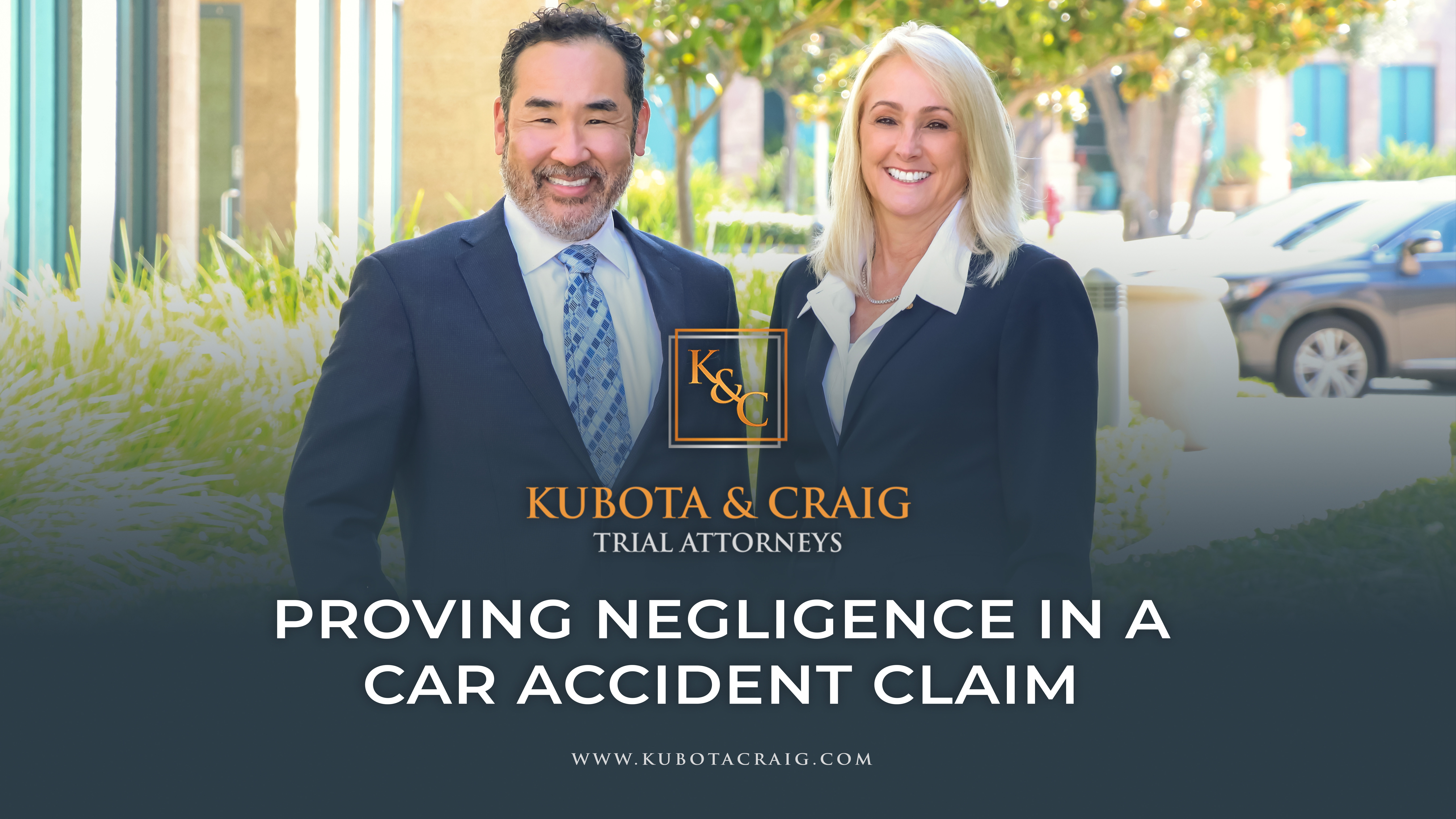Proving Negligence in a Car Accident: Essential Elements for a Successful Claim

When it comes to personal injury claims arising from car accidents in Irvine, CA, there’s a fundamental principle that I, as a personal injury attorney at Kubota & Craig, adhere to – proving negligence. Establishing negligence is at the core of a successful car accident claim. In this blog post, I’ll guide you through the essential elements required to prove negligence and secure the compensation you deserve.
Understanding Negligence
Negligence, in the context of a car accident, refers to the failure of one party to exercise reasonable care, resulting in harm to another party. To have a valid personal injury claim, you need to demonstrate the following elements of negligence:
1. Duty of Care
The first step in proving negligence is establishing that the at-fault party owed you a duty of care. In car accident cases, all drivers have a duty to operate their vehicles safely and follow traffic laws. This duty includes actions like obeying speed limits, yielding the right of way, and avoiding reckless behavior.
2. Breach of Duty
Once the duty of care is established, you must show that the at-fault party breached this duty. This could involve actions such as speeding, running a red light, driving under the influence, or other reckless behaviors that deviate from what a reasonable person would do in similar circumstances.
3. Causation
Proving that the at-fault party breached their duty is not enough; you also need to establish that their breach directly caused your injuries. This requires a clear link between their actions and the harm you suffered. Medical records, accident reports, and expert testimony can all play a crucial role in demonstrating causation.
4. Damages
Lastly, you must provide evidence of the damages you incurred as a result of the accident. This includes medical bills, lost wages, property damage, pain and suffering, and any other losses related to the accident. Documenting these damages is essential for calculating the compensation you are entitled to.
Collecting Evidence
Proving negligence requires a thorough investigation and collection of evidence. Here are some key steps to follow:
1. Gathering Police Reports
Obtain a copy of the police report from the accident scene. This report often contains valuable information about the circumstances of the crash and any citations issued to the at-fault party.
2. Collecting Witness Statements
Interview any witnesses who saw the accident happen. Their statements can provide crucial testimony regarding the events leading up to the collision and who was at fault.
3. Documenting Medical Records
Keep detailed records of all medical treatments and expenses related to your injuries. Medical records serve as tangible proof of the harm you’ve suffered.
4. Accident Reconstruction
In complex cases, accident reconstruction experts may be called upon to recreate the accident and provide insights into liability and causation.
5. Expert Witnesses
Consider consulting with medical experts, engineers, or other professionals who can provide expert testimony to support your claim.
Why Legal Representation Matters
While you can pursue a car accident claim on your own, having a skilled personal injury attorney by your side can make a significant difference. Here’s how we can help:
- We have experience in gathering evidence, interviewing witnesses, and working with experts to build a strong case.
- We understand the complexities of California’s legal system and can navigate it on your behalf.
- We negotiate with insurance companies and the opposing party to secure a fair settlement that reflects the full extent of your damages.
- If a fair settlement cannot be reached, we are prepared to take your case to court and advocate for your rights before a judge and jury.
In conclusion, proving negligence is a critical aspect of any car accident claim in Irvine, CA. If you’ve been injured due to someone else’s negligence, don’t hesitate to reach out to Kubota & Craig for a free consultation. We are committed to helping you navigate the legal process and obtain the compensation you need for your recovery.

